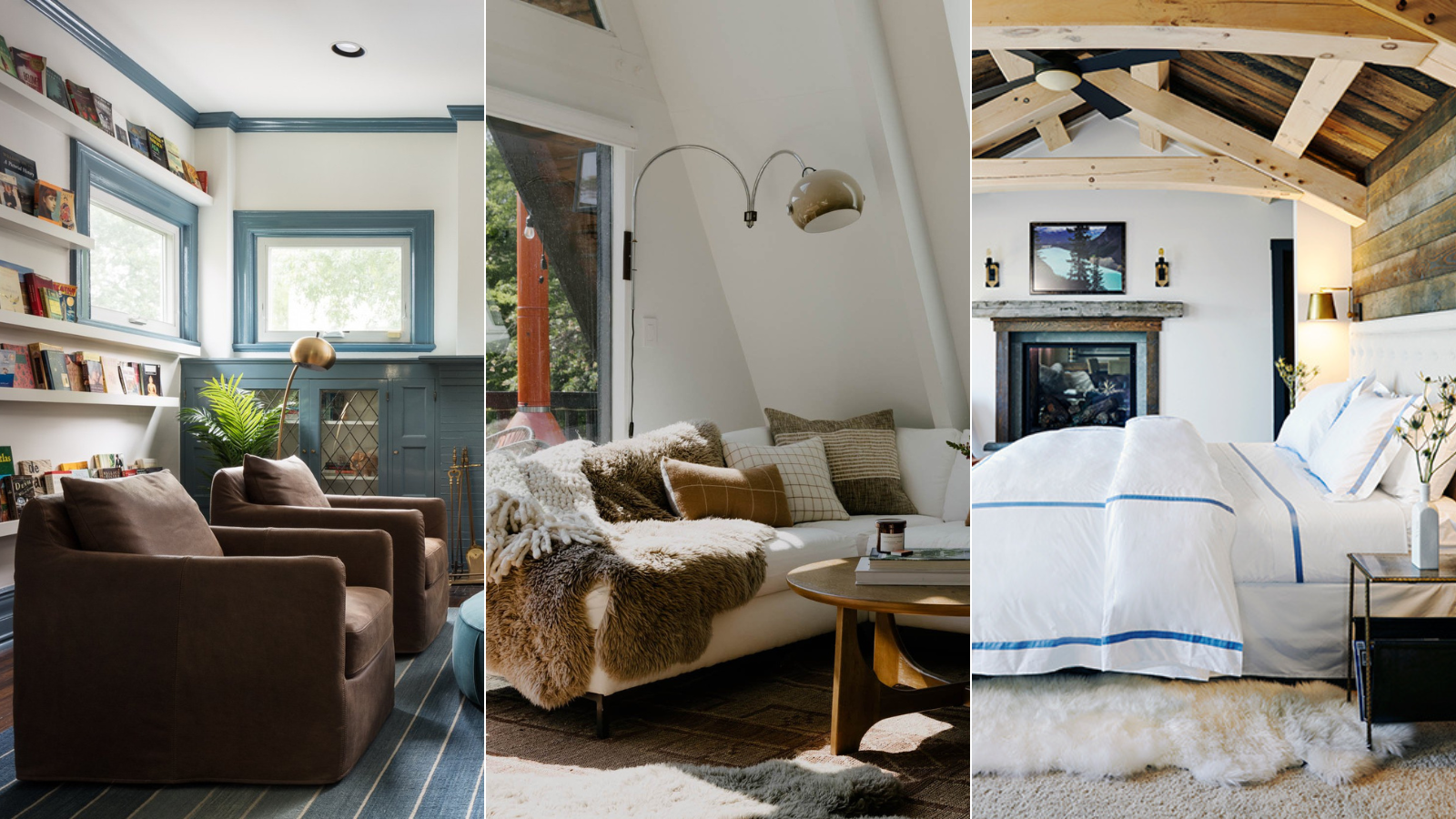
Nothing beats a warm and cozy interior design style, especially during the cold winter months. When all you want to do is curl up by the fireplace with a book and hot chocolate, a comfort-first decor style is the perfect accompaniment.
The wide appeal of comfortable, lived-in spaces has allowed the interior design trend hygge – which puts a slow and tranquil spin on everything from decor to daily routines – to really stand the test of time.
Defined by neutral color palettes, textural details and a minimalistic approach, the Danish style has found its way into the interior design hall of fame. But is hygge still on trend? And how has it adapted to the fast-moving world of interiors? We spoke with interior design experts so you can try out hygge in a fresh, fit-for-2024 way.
What is hygge?
The Danish concept of hygge describes warm, comfortable and contented feeling. Though it's been around in one way or another for centuries, it was brought into the world of wellness by author Meik Wiking in 2016. His bestselling book, The little book of hygge, introduced the idea to millions, and the slow, conscious style of living has since caught on – and not just when it comes to mental well-being.
The interior design world fell in love with hygge too, and it's become one of the classics, along with the simplistic and beloved Scandinavian style, and the Swedish less-is-more concept of Lagom.
In interiors, hygge uses warm yet neutral colors, comfortable touches like throw blankets and fireplaces, and intentional design choices to achieve a warm and cozy space that matches your needs. It's minimalistic and often brings natural elements indoors for a calming, sustainable space. The best part? You can usually give your space a hygge upgrade with items you already have in the house.
How to channel hygge for 2024
Although hygge-inspired interior design is timeless, it has adapted to homeowners' changing tastes. A lot has changed since 2016, and hygge is keeping up.
Designers say that the Danish style isn't going anywhere, and it's only improved as time has gone on. Here's what to know about channeling hygge in your own home, and keeping it contemporary for the new year.
1. Opt for long-lasting luxury over kitschy accessories
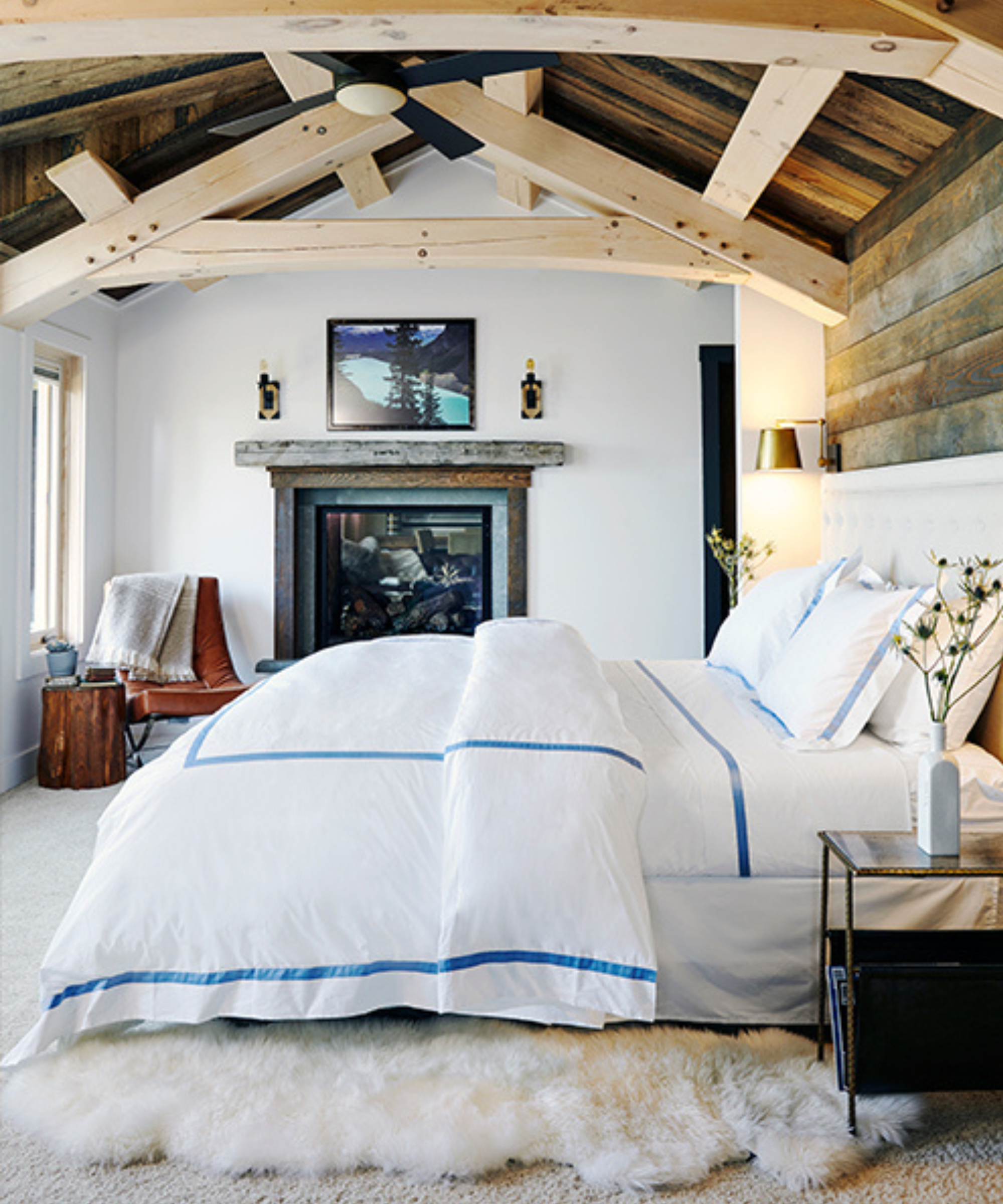
Kathy Kuo, interior designer and CEO of Kathy Kuo Home says that hygge is here for good, but the design style's meaning has changed over time. For a contemporary spin on hygge, she suggests leaving behind the sometimes-showy details that became associated with the trend early on.
'When the term first entered the design lexicon, it tended to manifest a bit more on the kitschy side than the sophisticated side; I think that has changed and now you see spaces that are impeccably designed with luxurious furnishings, unique wall art and really beautiful soft goods that speak to the hygge sensibility in an elevated way,' she explains.
Instead of decking out your living room in faux fur upholstery and dozens of cozy textures, make an investment in the small details of a space. The name of the hygge game is minimalism, after all. Opting for high-quality pieces that truly bring you peace of mind rather than over-the-top accessories will leave you with a space that feels calm and collected.
2. Create calm lighting and minimize technology
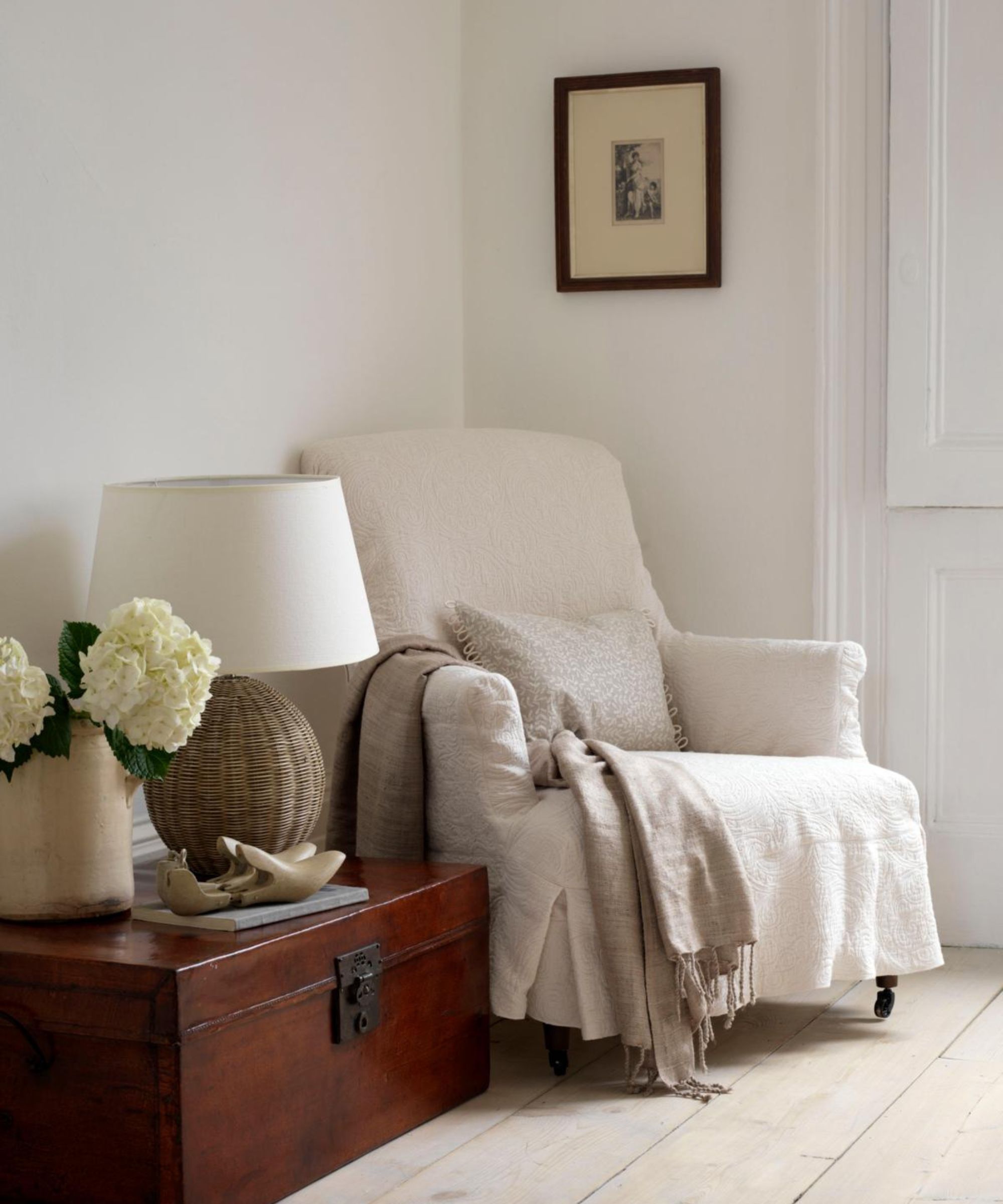
Hygge offers an escape from all things hectic. And, according to Tom Rutt, interior designer and founder of TR Studios, that includes an escape from technology.
In an era where much of our lives are online, and new smart home gadgets are popping up every day, it can be hard to separate high-tech from high-end style. But by paying extra attention to limiting technology and keeping lighting schemes on the understated side, you'll be well on your way to creating an everyday getaway right at home.
'The slow and mindful approach to living which hygge advocates will never go out of style. Draw inspiration from its neutral and natural color and material palette, its soft, layered approach to lighting, and its focus on reduced tech to create an interior that is a serene and homely haven which in today’s fast-paced world is something still to be appreciated,' he says.
3. Layer patterns and textures
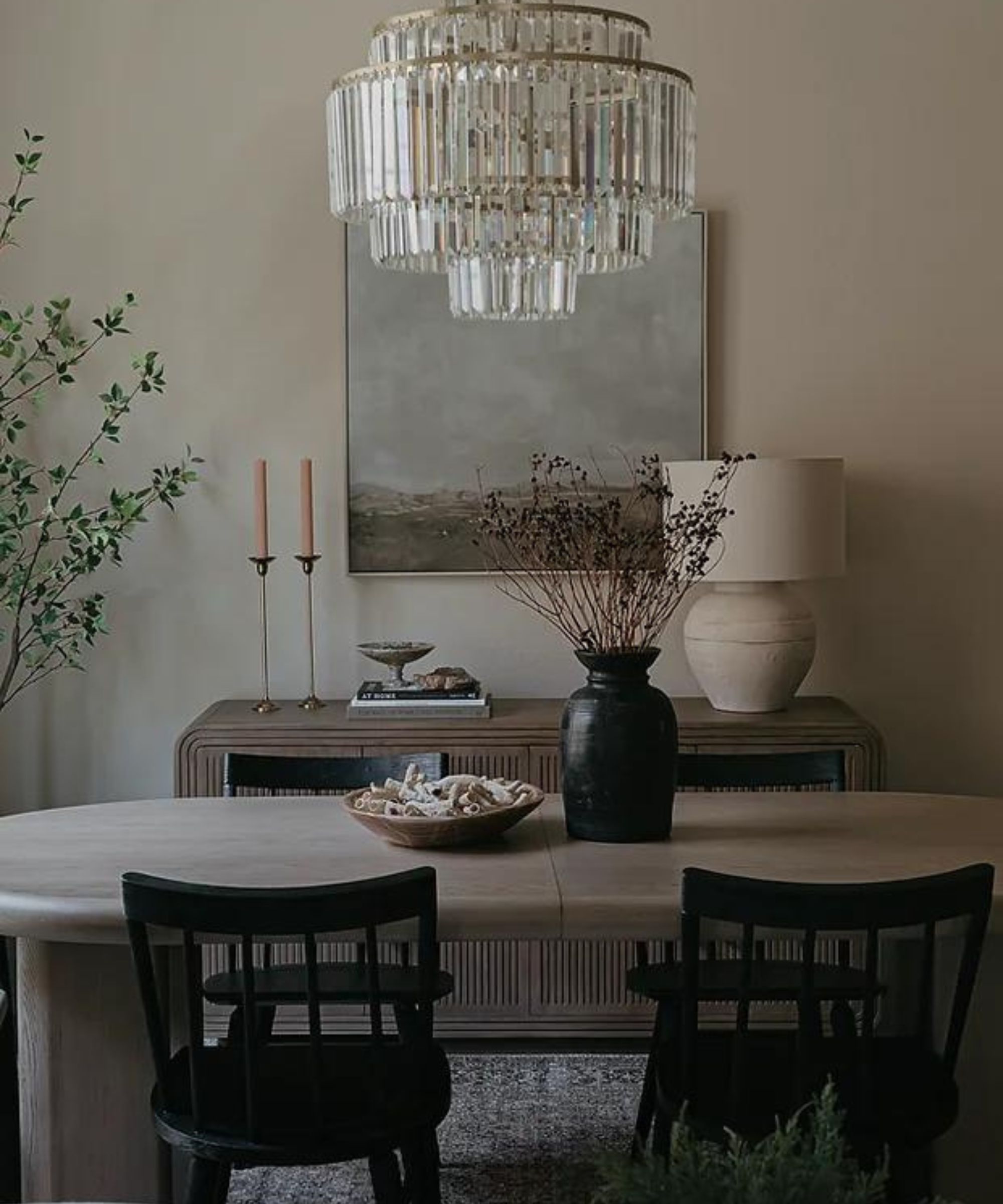
The desire for a calm and serene space hasn't changed, but the days of all-out minimalism are over. Audrey Scheck, principal designer at Audrey Scheck Design, says that tastefully layering your home decor is a one-way ticket to sophisticated style.
'While the concept of hygge is still going strong, the way it is evoked through design has evolved. Consumers are no longer leaning into minimalist decor, and instead are gravitating towards layers of patterns and textures to create a warm and welcoming atmosphere,' she says.
Integrate pattern with area rugs, upholstery and artwork, tying a color scheme throughout your space. Be mindful that you're adding interest and detail, rather than clutter. Everything should serve a purpose!
4. Look to other design styles for inspiration
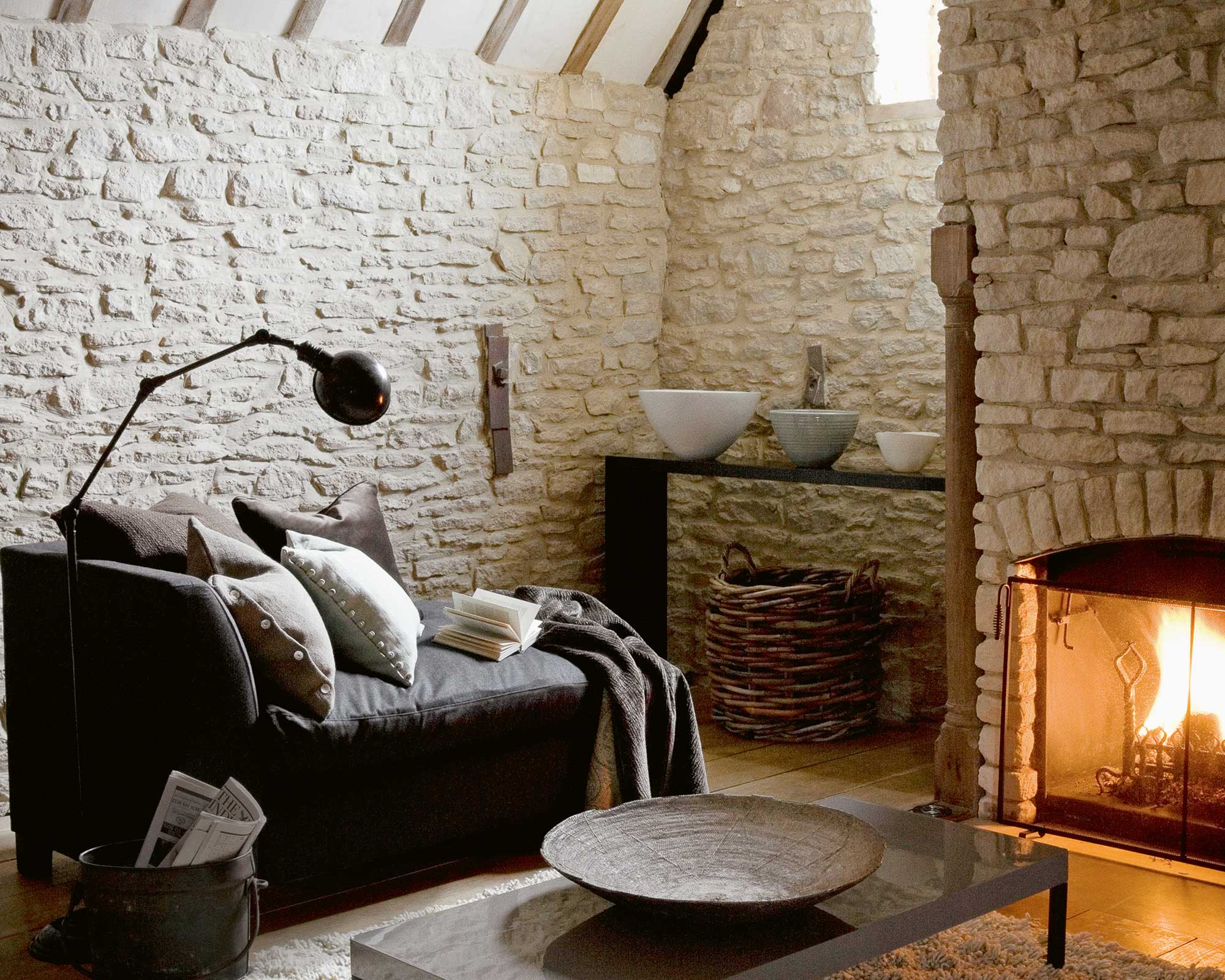
According to Jessica Jubelirer, interior designer and founder of Jessica Jubelirer Design, there are always ways to update a trend to make it timeless. Opt for other Scandinavian design favorites, but don't limit yourself to just one style.
'By layering in elements of Scandinavian design with other reference points, such as English antiques, Turkish embroidery, or Japanese ceramics, a space can feel enduring and textured. I’ve also incorporated unconventional hygge elements into spaces for a fresh and unique perspective on the trend, such as upholstering beds with bouclé or hanging a beautiful Scandinavian textile on the wall,' says Jessica.
5. Add a touch of maximalism
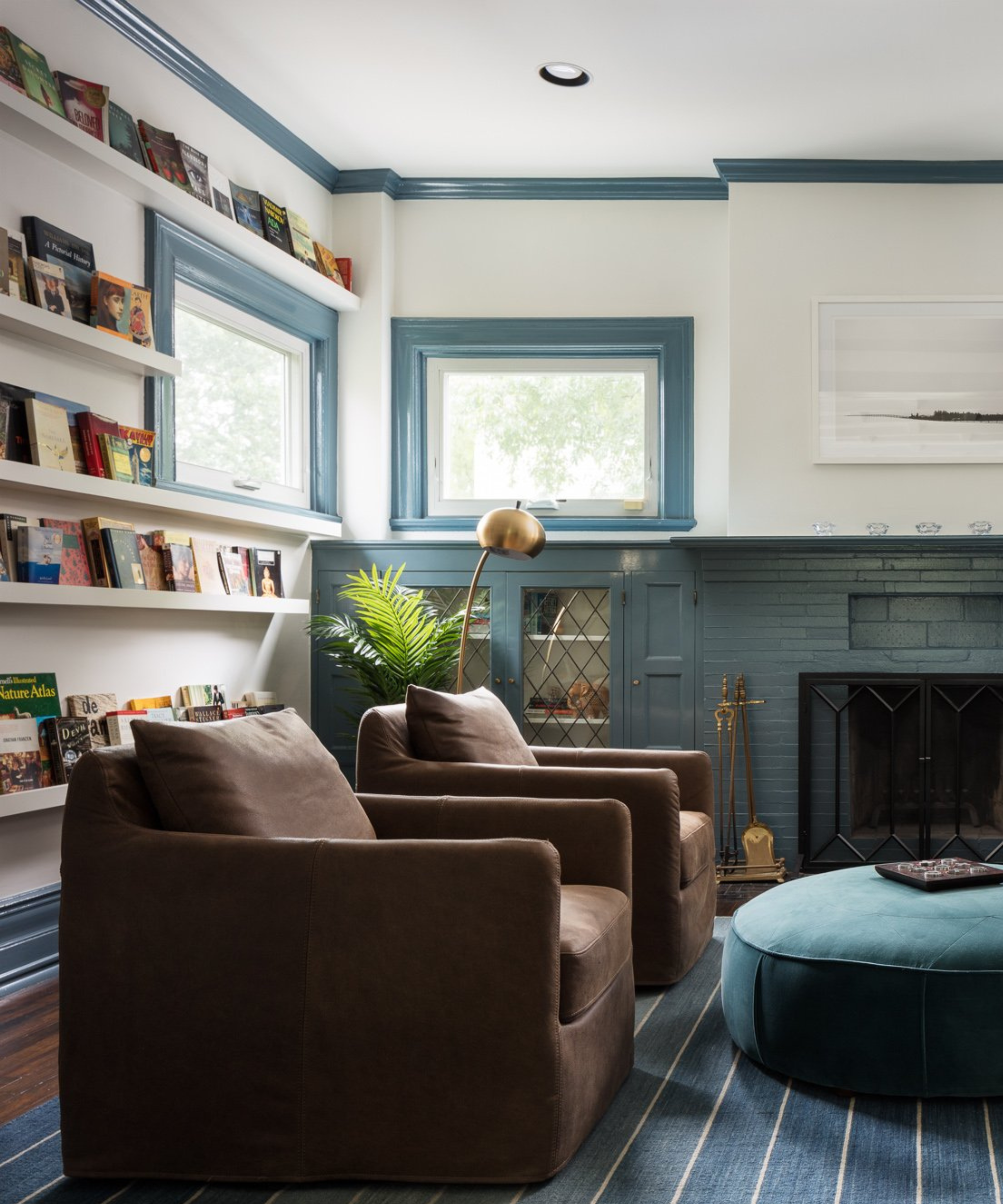
Though hygge is mostly known for its minimalist, understated design look, there's always room to up the ante. Alexandra Denburg, principal interior designer at M&P Design Group, says that contemporary hygge works well alongside a touch of considered maximalism. She suggests mixing in elements of depth and personality rather than only relying on simplistic accessories.
'While we’re seeing warm, deep, earthy tones, understated opulence, and a return of subtle maximalism take hold of the design world again, the concept of building these spaces to feel comfortable, homey, warm, and inviting, all harken back to the Hygge philosophy,' says Alexandra.
6. Mix in newer trends
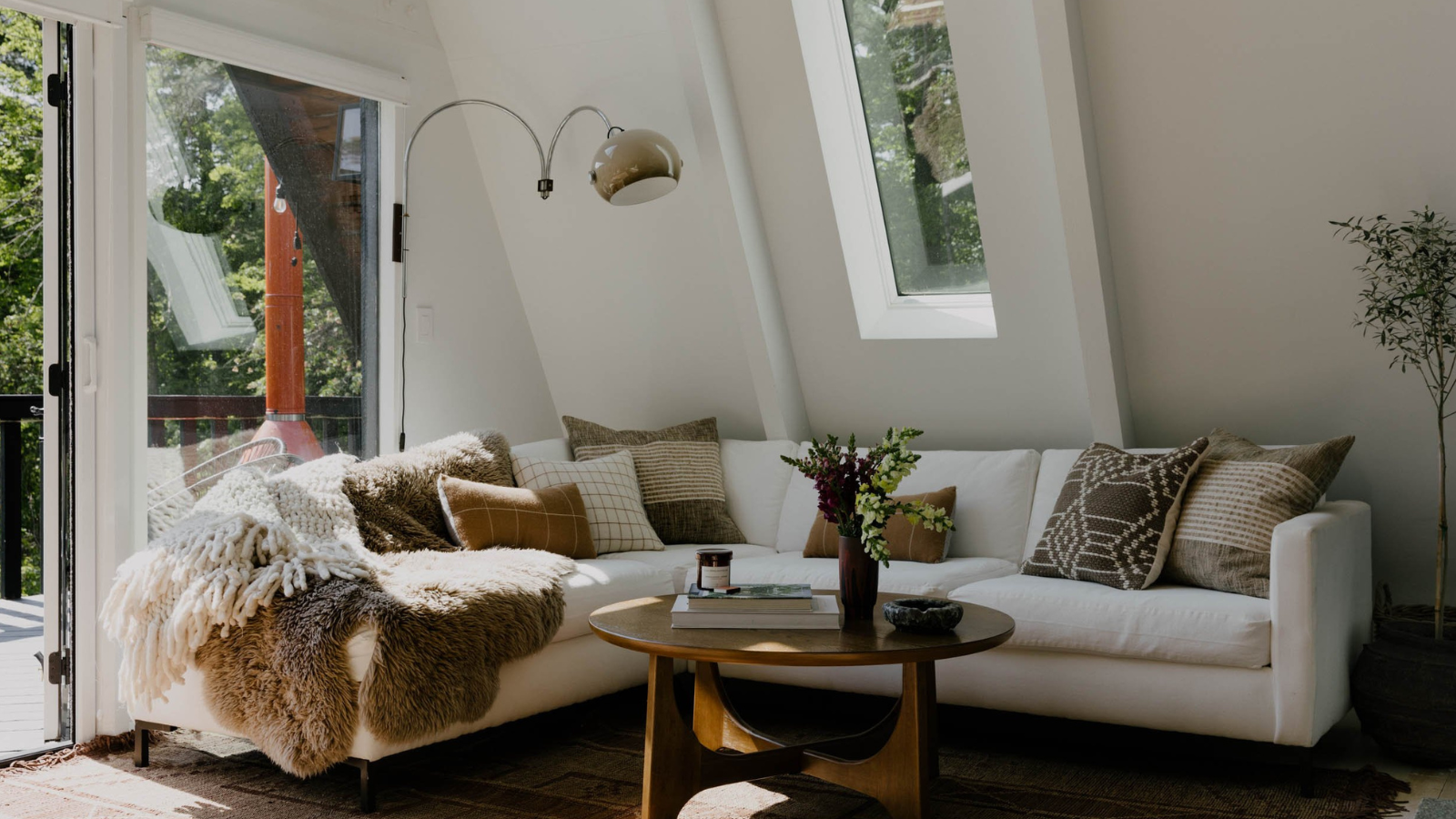
To truly keep your home's hygge look up to date, Stefania Skrabak – principal designer at AHG Interiors – suggests looking to present-day trends.
'It's a trend where even if it's not on peak commercialism, it will always be a classic. I think it's adapted with the modern updated from current trends, such as the Japandi trend, shapes such as the curved sofa and mixing in sustainability. Even maximalism can play here by using a lot of texture in a tonal play. It's all about being cozy!' says Stefania.
Combine hygge principles with inspiration from your current favorite trends by introducing new furniture, or updating with accessories. With a hygge foundation and rotating finishing touches, you'll be left with an ever-evolving space that feels timeless yet fresh.
Though hygge has adapted to changing tastes and needs over time, it undoubtedly has staying power. By keeping the design style’s classic tenets in mind and updating the look to fit with contemporary preferences, you can achieve a hygge-inspired interior that makes you feel right at home.
‘As long as winter comes around on a yearly basis, hygge is here to stay. There’s something that’s just timeless about wanting to feel warm and cozy during the winter, and during the holiday season especially,’ says Kathy.





